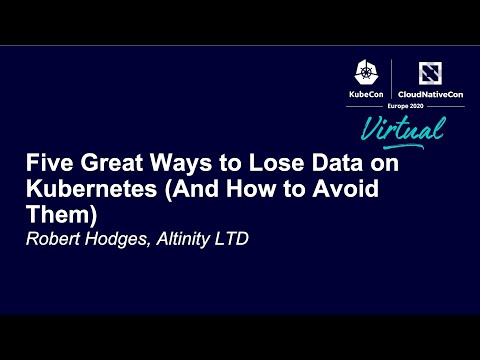Description:
Explore five common ways to lose data on Kubernetes and learn effective strategies to prevent data loss in this informative conference talk. Delve into the challenges of running databases and stateful applications on Kubernetes, drawing from the speaker's extensive experience as a database engineer and developer of the ClickHouse Kubernetes operator. Examine traditional high availability and disaster recovery models, and discover how they apply to Kubernetes environments. Investigate Kubernetes-specific pitfalls, including persistent volume issues, affinity problems, and human error. Gain valuable insights on implementing robust data protection measures, such as proper replication strategies, affinity and anti-affinity configurations, and blast radius management. Learn the importance of thorough testing, resource definition checks, and automation in maintaining data integrity. Develop a proactive approach to data management in cloud-native environments and acquire practical tools to ensure successful experiences with Kubernetes-based data systems.
Read more

Five Great Ways to Lose Data on Kubernetes - And How to Avoid Them
Add to list
#Conference Talks
#Computer Science
#DevOps
#Kubernetes
#Information Technology
#Disaster Recovery
#Data Management
#Data Integrity
#Database Management
#Software Engineering
#Software Architecture
#High Availability
#Information Security (InfoSec)
#Cybersecurity
#Data Loss Prevention